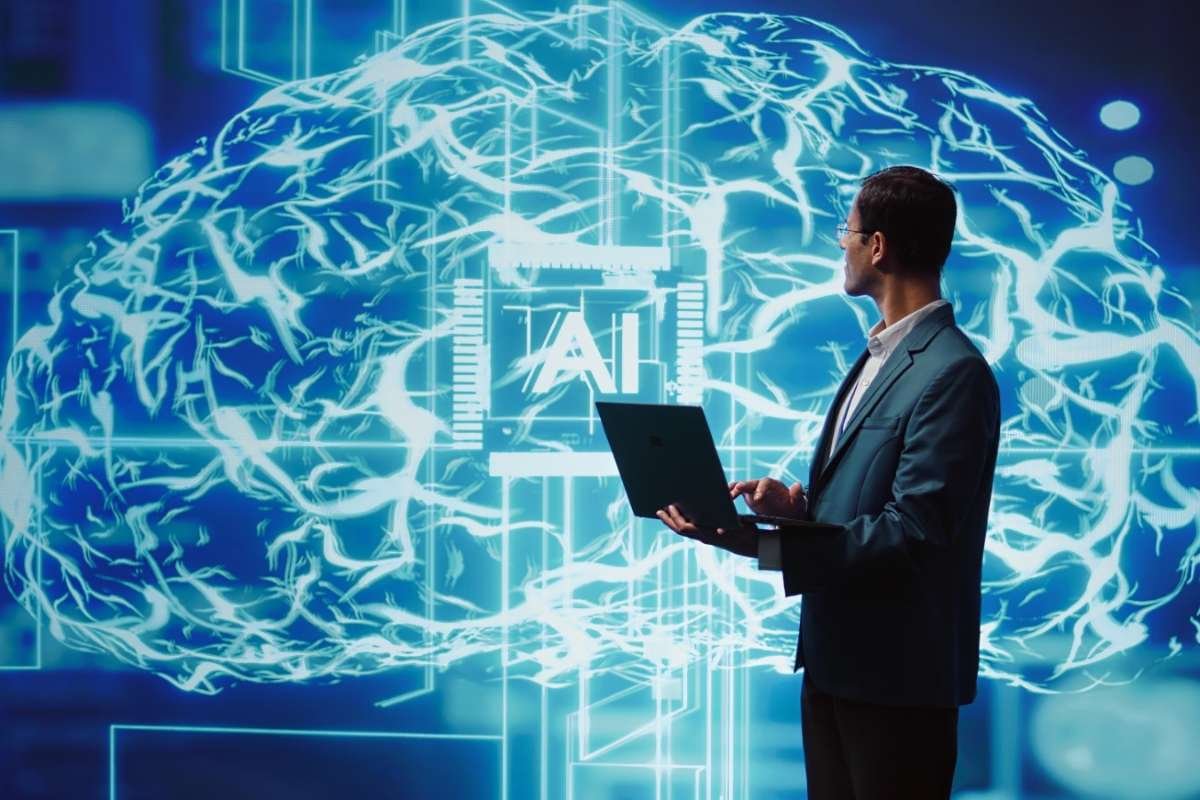Change is a given in today’s business world.
Businesses have to navigate a constantly shifting landscape characterized by fluid customer preferences, accelerated digitization, and heightened cyber threats. In all this, what does competitiveness in 2025 look like for a small and medium enterprise (SME)? Which two key areas can produce growth at this time? AI and Cybersecurity.
AI: Powering Smarter, Faster, Nimbler Decision-Making
AI is now the backbone that allows small businesses to become more efficient with more accurate insight and unlock more creativity. It can help automate repetitive tasks, analyze data in real-time, and make smarter decisions easier. Take chatbots, for instance. Most small and medium-sized businesses rely on AI-enabled chat assistants to address customer inquiries around the clock.

The kind of customer service that requires a dedicated team to resolve can now be executed by an AI-powered machine that gets smarter after each interaction. Business owners can now leverage predictive analytics to better understand customers, improve marketing campaigns, and take a smarter approach to managing inventory. Small business owners will be the ones who use AI to understand how behavior can evolve and identify changes before they become problems.
It is important to note that 44% of SMB decision makers agree that AI will hugely impact businesses in 2025, as reported by Clutch, which is not a coincidence. That is because businesses have already experienced the measurable benefits of applying AI to improve operations.
Cybersecurity: The Fabric of Digital Trust
With great power comes great responsibility. AI may signal new horizons for growth and opportunity, but unleashing its potential is not without risk. In 2025, cybersecurity lends itself to growth instead of being a mere protective measure. Today’s customers are reluctant to share data with businesses that don’t prioritize privacy. All it takes to compromise data security and cause irreversible damage to the brand reputation is one breach. However, managing risk isn’t easy.
Small businesses need security evaluation, employee training, and real-time monitoring with every technological development. New tools like zero-trust architecture and AI security testing will be used as the standard, rather than the exception. Stringent data protection regulations are expected to be enforced in 2025.
It isn’t simply a matter of avoiding fines. A single regulatory mistake could damage customer relationships to a great extent. For small businesses, that’s dangerous because when most perceive themselves to be low-key, they’re often the most vulnerable due to weaker security measures.
Integration Is the New Differentiation
AI and Cybersecurity are inseparable forces—AI accelerates threat detection beyond human capability, while cybersecurity ensures the systems powering AI remain secure and resilient against attacks. Each empowers the other, forming a critical foundation for digital trust and innovation.

Consider a cloud-based CRM tool used by a company. The business might deploy AI through that software as a way of scoring leads, automating communication, and personalizing the customer purchase path. Yet at its core, this same software is storing customer data on a connected server. If a cyber attacker breaches the database, all of that business’s hard work toward growth becomes nothing.
While it might seem obvious, smart businesses are building strategies around adopting this dual approach to growth. AI is used to pick up on anomalies or irregular data patterns, alerting staff to the presence of potential data breaches before they happen. At the same time, cybersecurity frameworks are revamped to automate the previously overwhelming data requirements necessitated by AI software.
Who’s Already Doing It?
Small online retail shops are deploying low-cost AI to track customers and make product recommendations, a smaller-scale version of what Amazon is doing with its online shop. By implementing encrypted payment and checkout systems, these small shopkeepers are also building trust with their customers by securing their data.
Service businesses are using scheduling software to set up the best appointment times and adequate staffing. Combine this with biometrics as a password and two-step verification, and customer data becomes easily accessible but completely secure.
From neighborhood gyms to coffee shops, businesses are embracing AI and Cybersecurity—using intelligent systems to manage loyalty programs while securing customer data from potential threats.
The Competitive Edge Is Now Digital

Modern consumers value personalization, instant support, and secure payments—needs that demand strategic tech investments. In this landscape, the businesses that excel in AI and Cybersecurity will outpace others, not because of superior talent or products alone, but through innovation and responsible use of transformative tools.


















